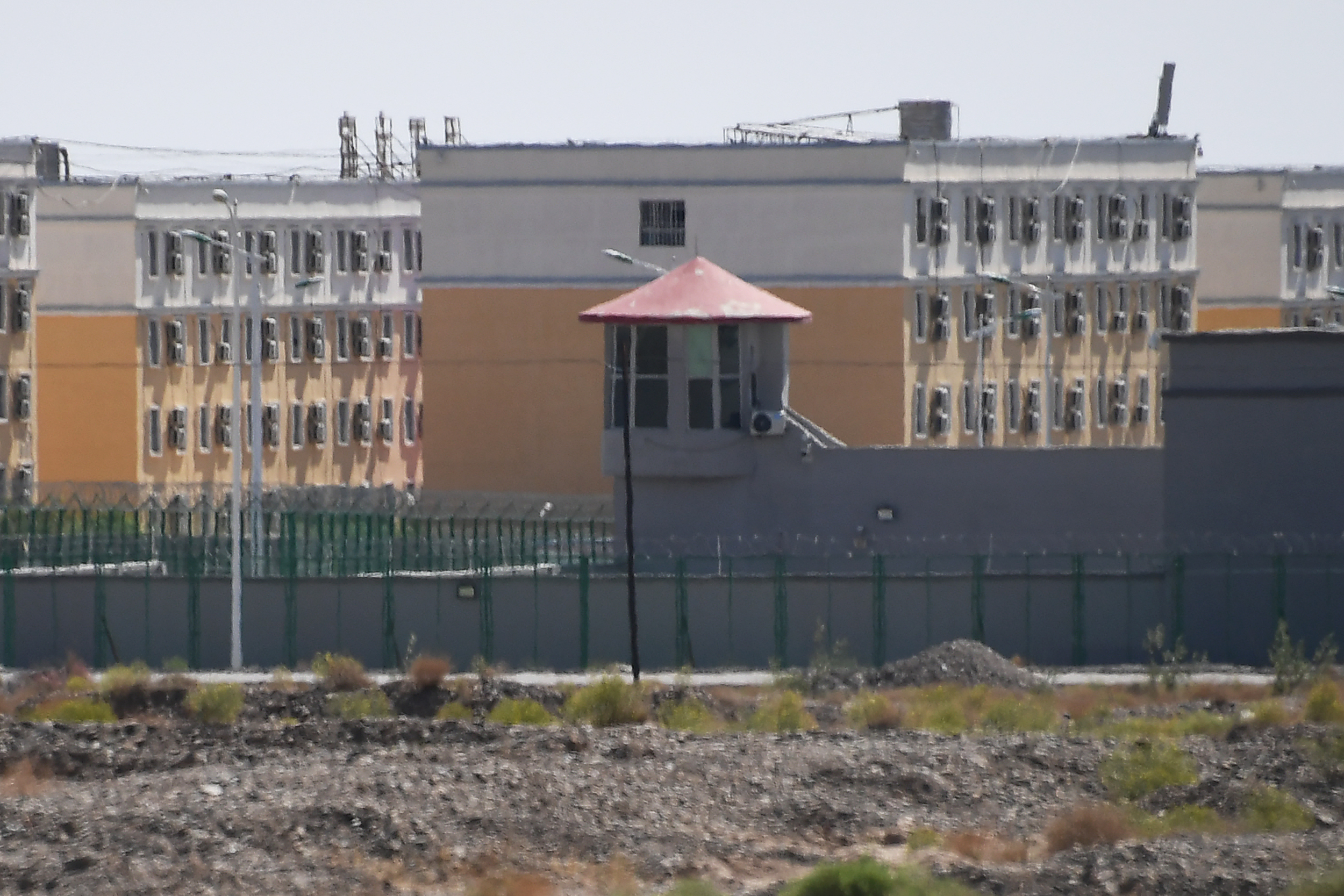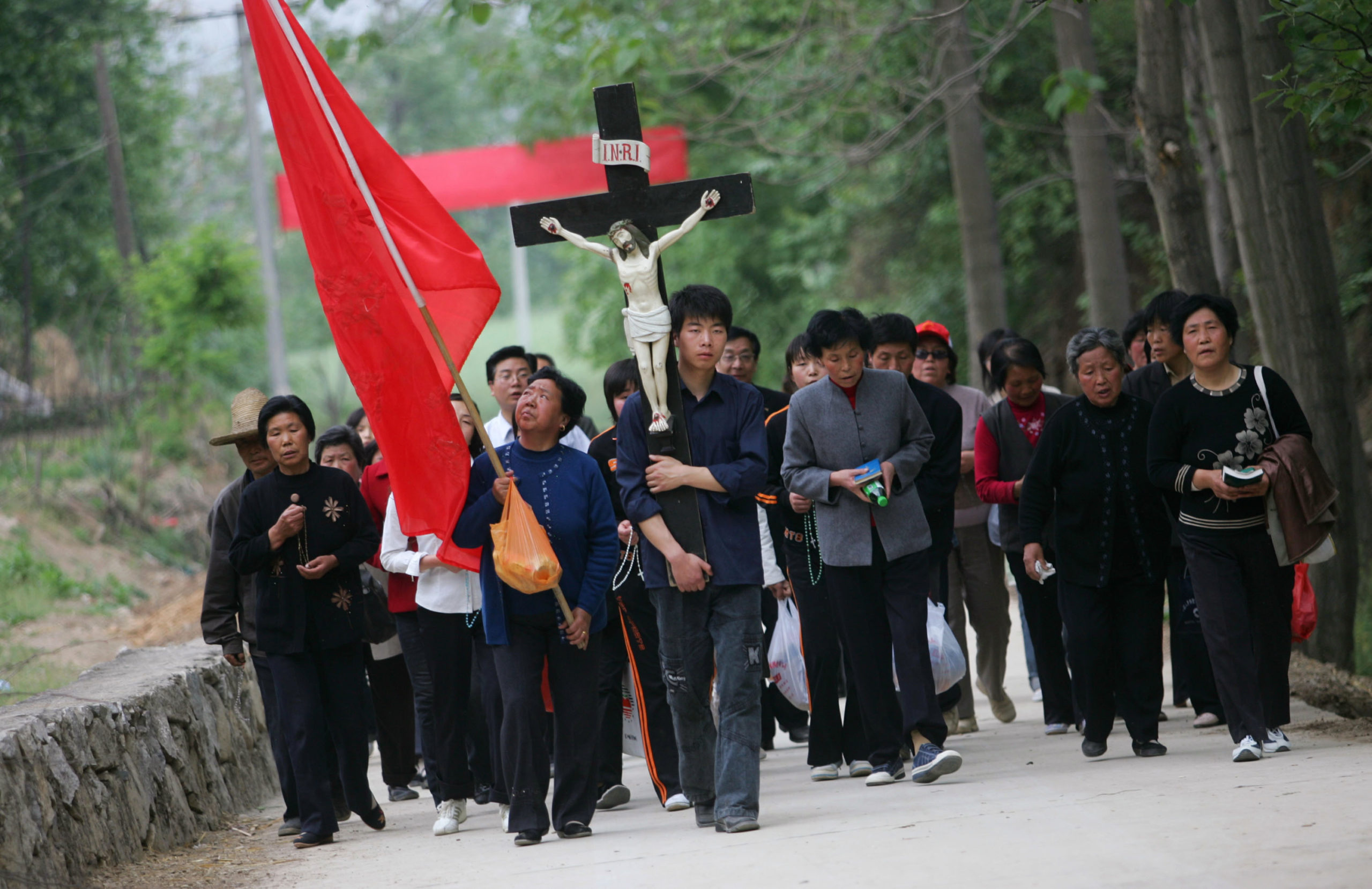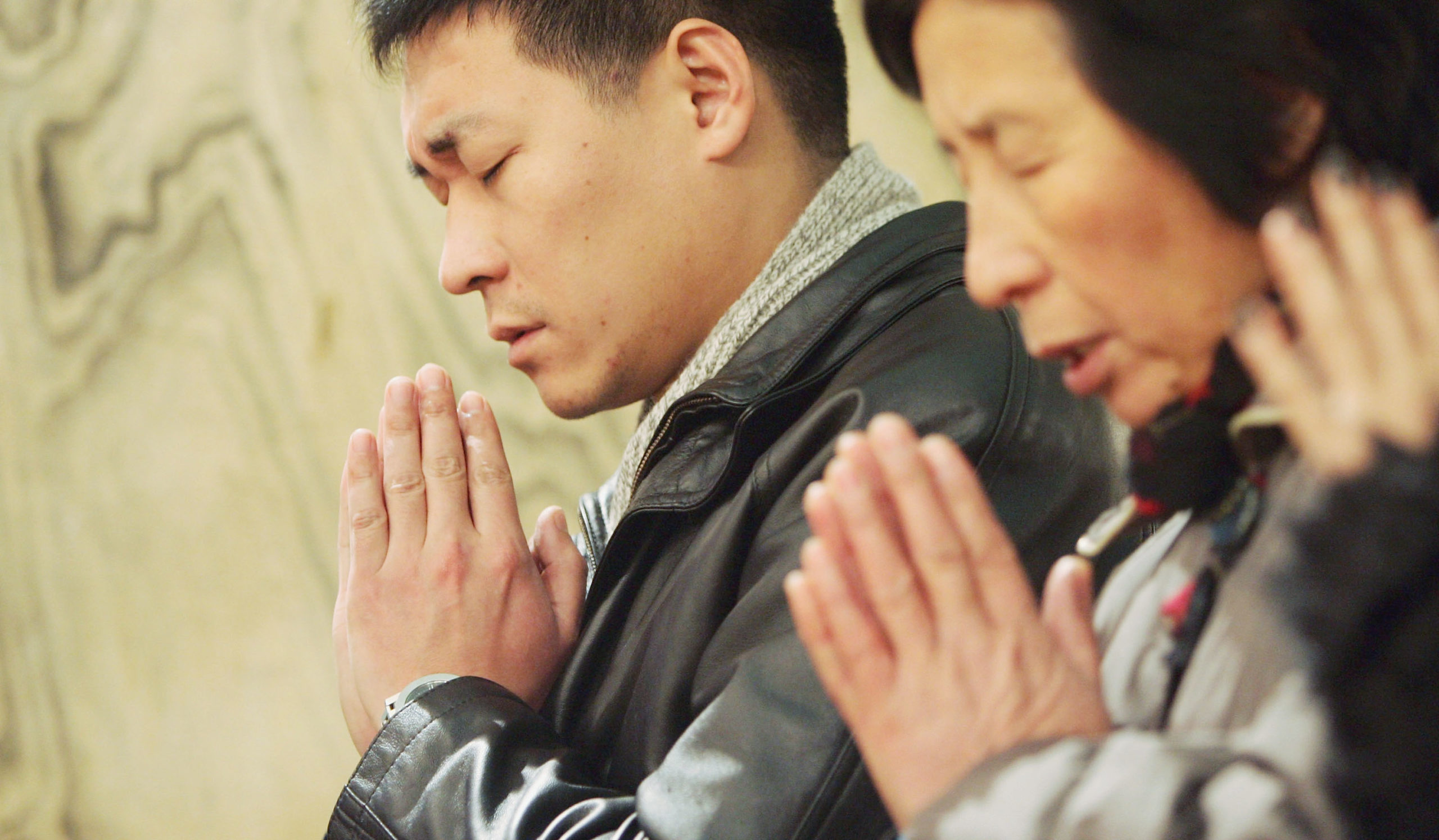The Chinese Communist Party (CCP) has intensified its crackdown on religion in an attempt to “sinicize” the population and assert itself as a “new authoritarian model” for developing nations, a report by the United States Commission on International Religious Freedom (USCIRF) showed.
USCIRF released its annual report that assesses religious freedom violations and improvements in 26 countries on Wednesday. China was among the ten countries that the commission recommended be classified as a “country of particular concern” over the worsening religious freedom conditions, the report said. (RELATED: ‘A Regime That Fears Religion’: New Report Details China’s Crackdown On Religion)
Although the CCP has long been hostile toward religion, the report says that conditions have only “deteriorated” in 2020, and followers of Islam, Tibetan Buddhism and Christianity were targeted due to alleged “foreign” influences that the CCP is trying to eradicate.
Gary Bauer, a USCIRF commissioner appointed by President Donald Trump, described how the CCP views religion as an “existential threat” that stands in the way of its ability to enforce its influence domestically and abroad.
“When you read the literature of Communist Chinese thinkers thinkers, they think the 21st century will be the Chinese communist century,” Bauer told the Caller. “Their aim is to replace the U.S. as the dominant world power.”
The report highlights forced labor practices targeting Uyghurs and Turkic Muslims, particularly in the Xinjiang region. The Chinese government is accused of expanding its detention centers in 2020 and detaining Muslim minorities for wearing long beards, refusing alcohol, or showing signs of “religious extremism.”
Detainees of the camps have reported torture, rape, and forced sterilization. Many U.S. lawmakers have referred to the Chinese government’s actions in Xinjiang as “genocide.”
Bauer said China’s influence is so widespread in the economic sphere that the products of Uyghur forced labor have reached far and wide through supply chains.

This photo taken on June 2, 2019 shows buildings at the Artux City Vocational Skills Education Training Service Center, believed to be a re-education camp where mostly Muslim ethnic minorities are detained, north of Kashgar in China’s northwestern Xinjiang region. – (GREG BAKER/AFP via Getty Images)
“It’s an open secret that many of those supply lines are tainted with slave labor,” he told the Caller. “Uyghurs and other prisoners of conscience are being forced into work in factories for low or little wedges and the companies benefiting from this look the other way.”
Christians have also been harassed and tortured in China. According to the report, underground Catholic bishops who refused to join China’s state-backed Catholic association were detained. Instead of joining state-backed “churches,” where worshippers are closely monitored and spied on, many Christians, which make up 5% of the country, worship underground.
A house pastor named Zhao Huaiguo was arrested in April for “inciting subversion of state power.” Catholic and Protestant churches were destroyed by the government as part of the “sinicization” campaign.

Catholics walk to the simulated crucifixion site of Jesus at Cross Hill at Paowo Village on May 2, 2007 in Meixian County of Shaanxi Province, China. (Photo by China Photos/Getty Images)
“It’s a country run by the Communist Party of China and they’re officially atheist China, so any religious faith is seen as an existential threat to the Chinese communists,” Bauer said. “That’s why, even though it doesn’t get much publicity, they go into churches and crosses are taken down or artistic renditions of Christ are removed and replaced with pictures of [Chinese leader Xi Jinping.]”
Tibetan Buddhists are also targeted by the CCP. “In August, at the Seventh Tibet Work Forum, Chinese Communist Party (CCP) General Secretary Xi Jinping emphasized the importance of sinicizing Tibetan Buddhism to make it compatible with Chinese socialism and mobi- lizing Tibetans to “fight against separatism,” the report said.

Catholics pray at Christmas Mass at a church on December 24, 2004 in Beijing, China. (Photo by Guang Niu/Getty Images)
U.S. officials have decried China’s treatment of religious minorities on multiple occasions. The U.S. became the first country in the world to formally declare in January that China is committing genocide against Uyghurs. Secretary of State Antony Blinken said during his confirmation hearing in January he agreed with former Secretary of State Mike Pompeo’s determination that China was committing genocide and crimes against humanity in Xinjiang.
Moments after President Joe Biden was sworn in as president, the Chinese government announced sanctions on more than two dozen Trump administration officials, including Pompeo, for having “seriously violated China’s sovereignty.” The Biden administration has also placed sanctions on Chinese officials.
USCIRF makes multiple recommendations to U.S. officials for how to address China’s religious freedom abuses, including sanctions on Chinese government agencies, countering Chinese government influence in the U.S., and publicly expressing concerns about the 2022 Winter Olympic Games in Beijing.
Bauer recalled a debate about whether U.S. trade with China would make China more fond of freedom, and said that even 25 years ago, he was pessimistic about the possibility.
“George W. Bush argued it would change China, and I took the opposite view,” he said. “I need to give him a call and say ‘do you have an estimated time of arrival?’ because [freedom] is still not there.”












